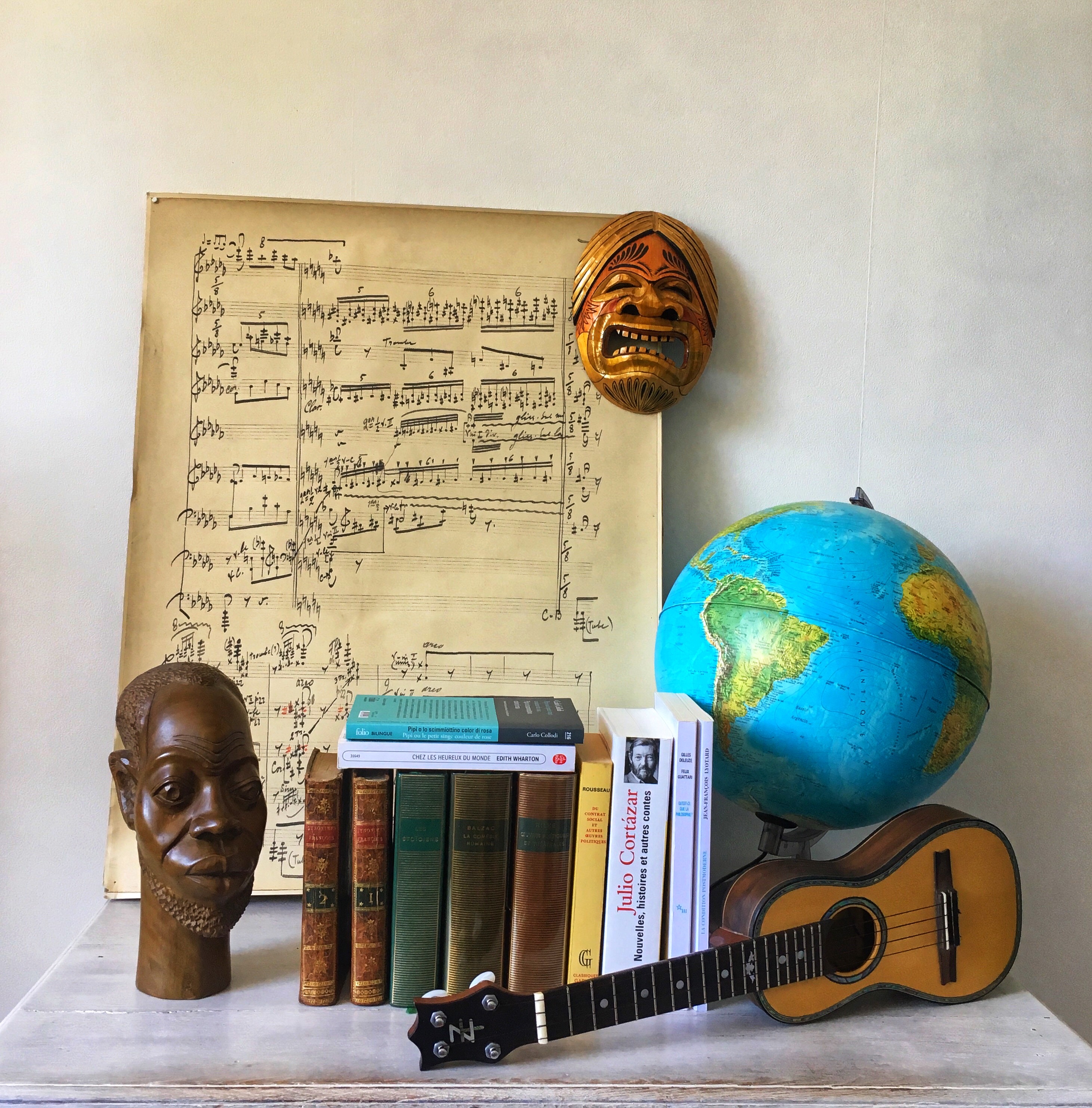L’unité de recherche interdisciplinaire ICD (« Interactions culturelles et discursives », EA 6297) est née en 2012, de la fusion de quatre équipes du secteur LLSH (CIREMIA, GRAAT, Histoire des Représentations et RTmus), à cheval sur les deux facultés de Lettres et Langues, et d’Arts et Sciences humaines, en associant quelques collègues de l'IUT de Tours. Elle rassemble près de 80 enseignants-chercheurs (dont 30 HDR) et de 40 doctorants, en études latines, littérature française et francophone, littérature comparée, en littératures et civilisations anglo-américaine, germanique, hispanique et ibéro-américaine, italienne, en arts du spectacle, musicologie et philosophie. Sections CNU concernées: 08, 09, 10, 11, 12, 14, 17, 18, 20 et 71.
Son domaine de recherche s’étend, chronologiquement, de l’Antiquité jusqu’au XXIe siècle et, géographiquement, de l’Europe et du bassin méditerranéen jusqu’aux continents africain et américain.
Champs d’étude concernés :
Le programme 2024-2028 : « Individu et collectivité », dans le prolongement des précédents (« Paradigmes de l’autorité », 2012-2017 et « Libertés », 2018-2023), se structure autour de trois axes :
Axe 1 : « Inscription de l’individu et/ou du collectif dans l’espace politique et social »
Axe 2 : « Circulations des savoirs et pratiques littéraires, culturelles et artistiques »
Axe 3 : « Genre, Minorités et Collectivités ; Humanités environnementales »
Sans renoncer à la recherche spécialisée correspondant à telle ou telle section CNU, l’équipe encourage les études transversales. Les axes manifestent chacun des convergences dans les problématiques et dans leur mise en œuvre, tout en présentant entre eux des voies de passage. Les membres de l’équipe peuvent ainsi participer à plusieurs axes, selon le principe d’une libre circulation.
ICD organise chaque année à Tours même entre 4 et 8 colloques internationaux, et 10 à 12 journées d'étude, et participe à l'organisation d'autres manifestations scientifiques dans des universités françaises ou étrangères (pour la programmation, voir page
Activités scientifiques).
Responsables : 
Directeur : Tri Tran
Directeur adjoint : Erick Falc'her-Poyroux
Trésorière : Anne Ullmo
Correspondante Recherche-International (CRI) : Emmanuelle Séjourné
Correspondante Neolaia : Cécile Chapon
Correspondant Science Avec et Pour la Société (SAPS) : Florent Kohler
Correspondant HAL : Jérémy Michot
Correspondant Transition écologique : Florent Kohler
Programmes financés en cours
– ANR PsalteRATIO (AAPG2022), coord. Vladimir Agrigoroaei, resp. Tours-ICD Ileana Sasu: Étude comparative des traductions vernaculaires des psautiers en vers en France et en Angleterre – 2023-2026
– ANR JCJC TRUST_ISSUES (AAPG2023), coord. Marc Goetzmann (ICD): «Des Community Land Trusts aux Organismes de Foncier Solidaire. Étude d’un “transfert” juridique» – 2024-2027
Revues :
The interdisciplinary research unit ICD EA 6297 was born in 2012 with the merger of four groups belonging to the Letters, Languages, Human Sciences sector and grouping colleagues from two faculties (Letters and Languages, and Arts and Human Sciences), and the new entity allows the collaboration of academics working in the following departments: English, German, Spanish/Portuguese, Italian, Latin, French and comparative literature, performing arts, musicology and philosophy. Chronologically, its field of research starts with the ancient world and extends all the way to the 21st century. Geographically, it includes Europe, the Mediterranean, Africa and the Americas.
Skills and know-how
- cultural history of the ancient (Greek and Roman), modern and contemporary worlds (in a French-, English-, German-, Spanish- and Italian-speaking context)
- literature and the analysis of discourse (press, politics, philosophy)
- analysis of musical, iconographic and filmic discourses
- Gender studies and studies pertaining to identity
Applications areas
- Contemporary thought with regard to politics (autonomy and federalism, Brexit, forms of liberalism), culture and changes in lifestyle (gender and modern technologies)
- Literary publications and translations
- Expertise on plagiarism
Key words: Freedoms and liberties – utopia – democracy and federalism – liberalism – freedom and censorship – creation and interpretation – writing – history of ideas – cultural transfer – cultural studies – gender – environmental humanities